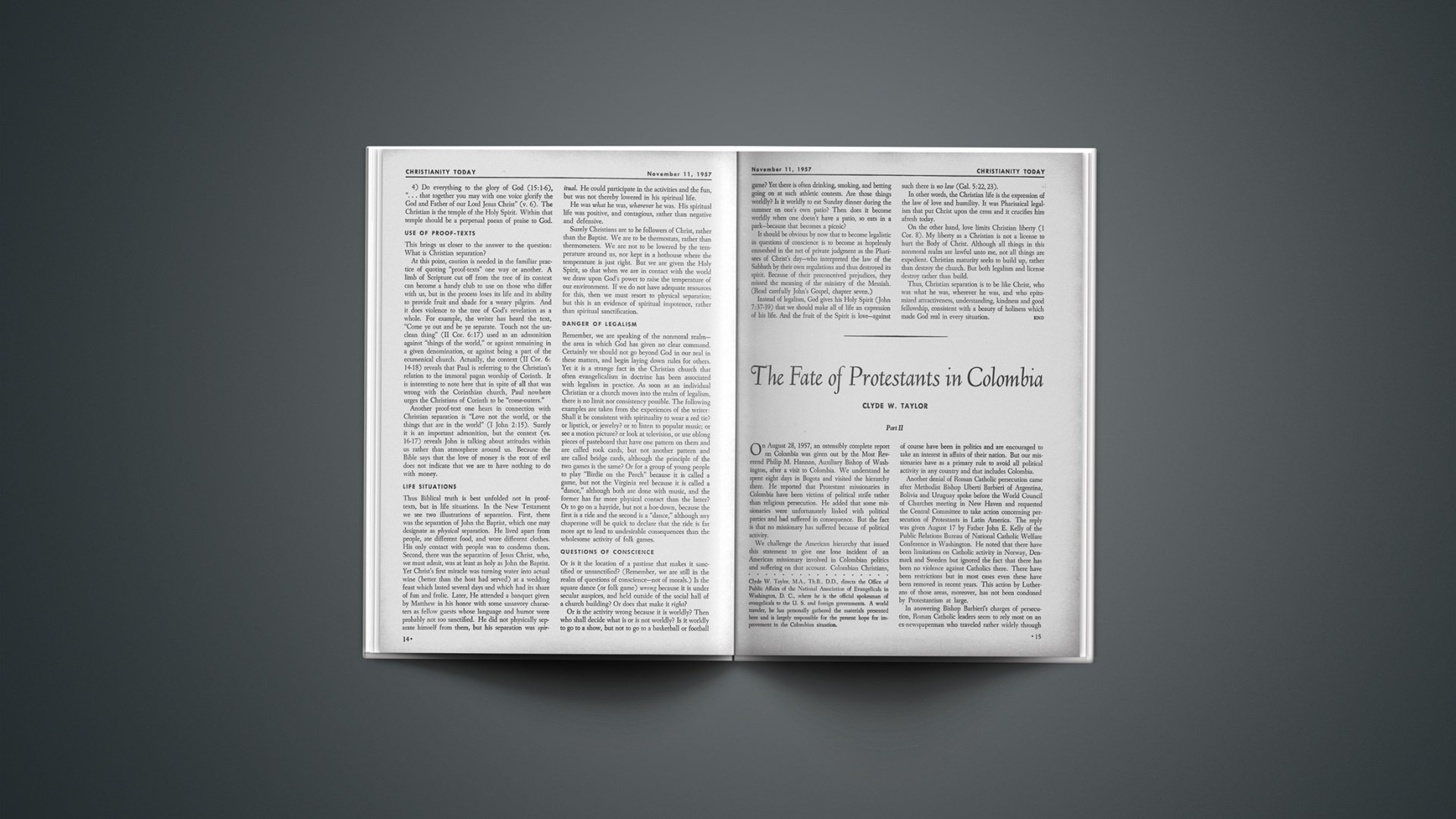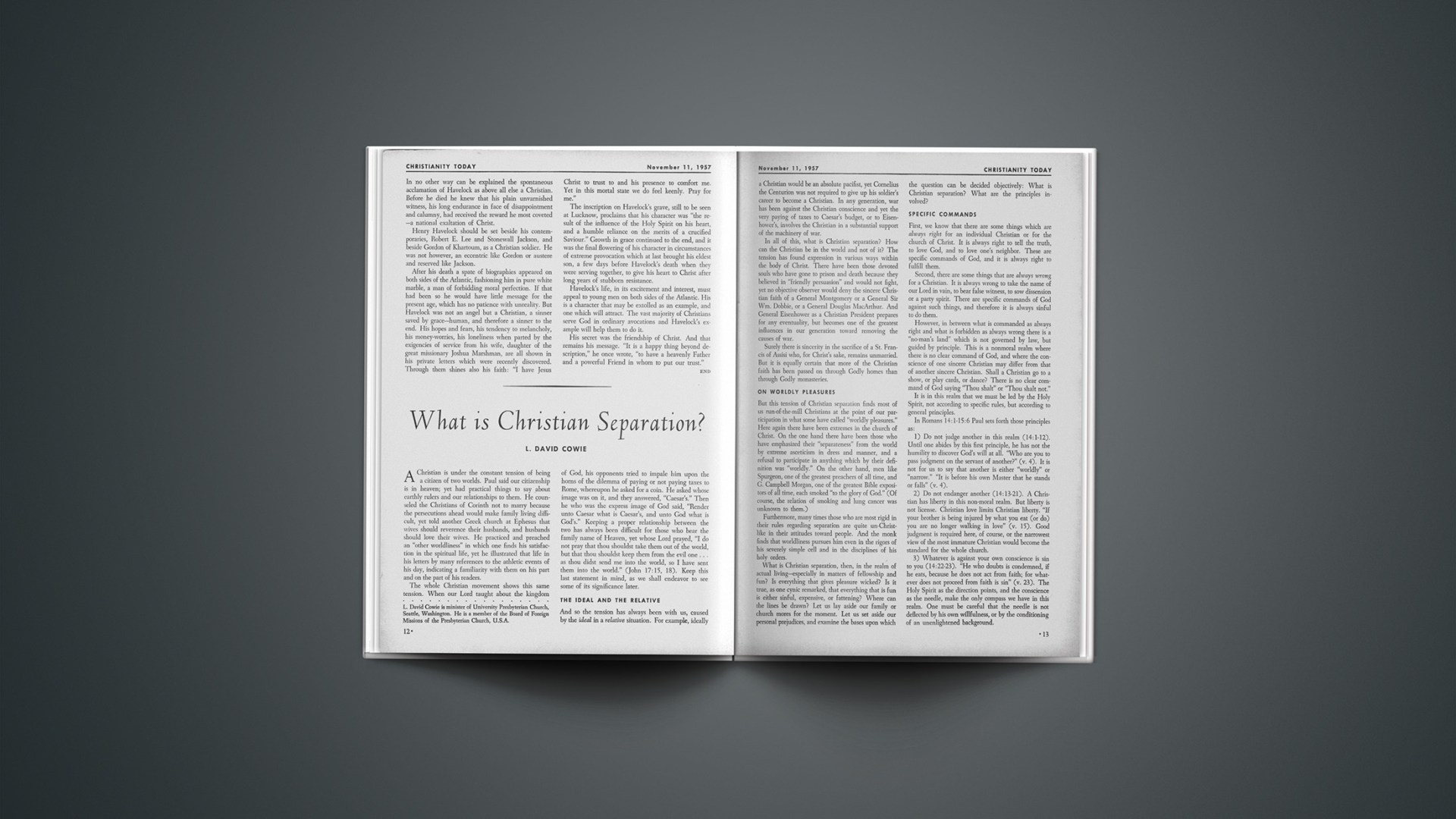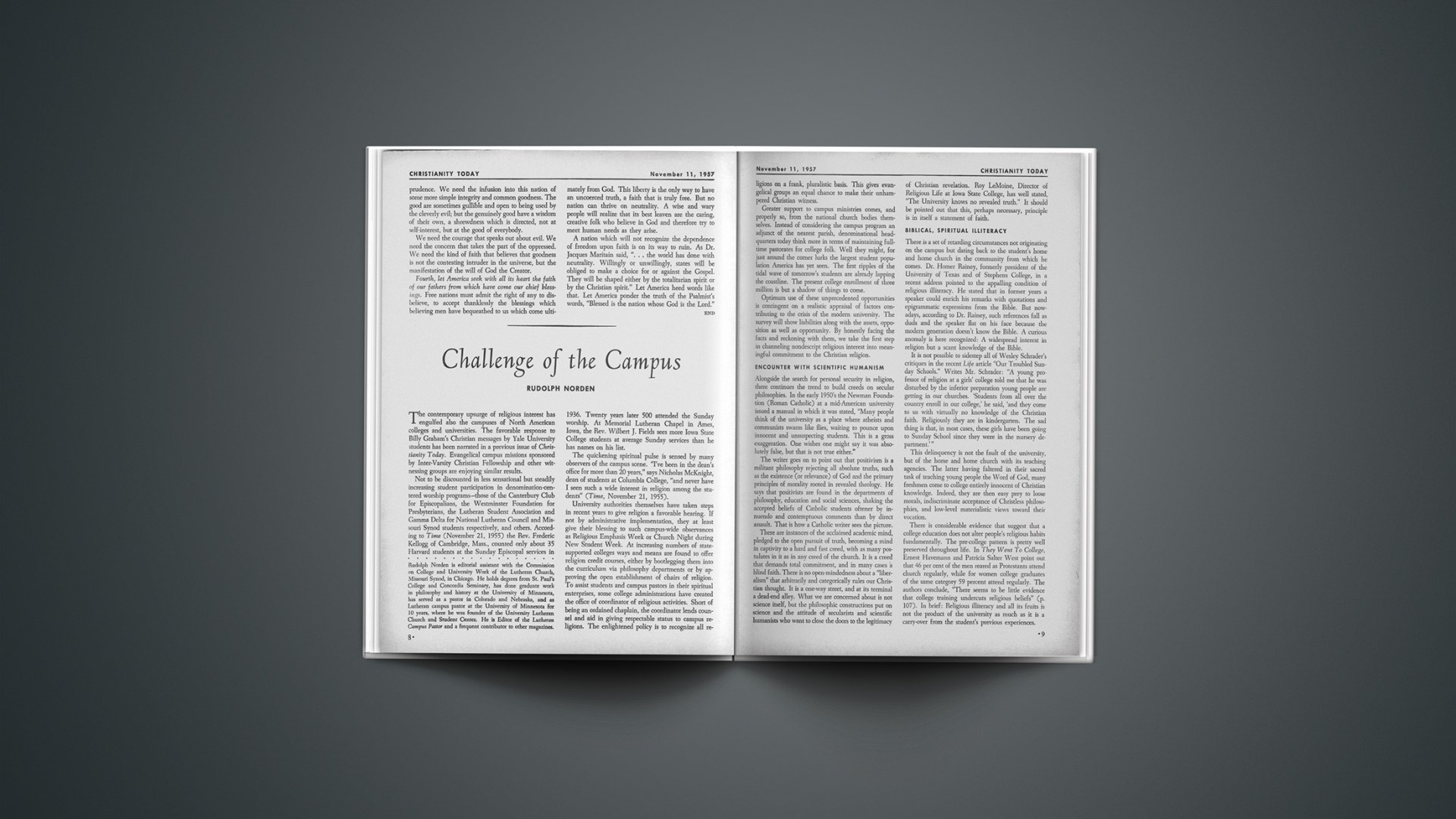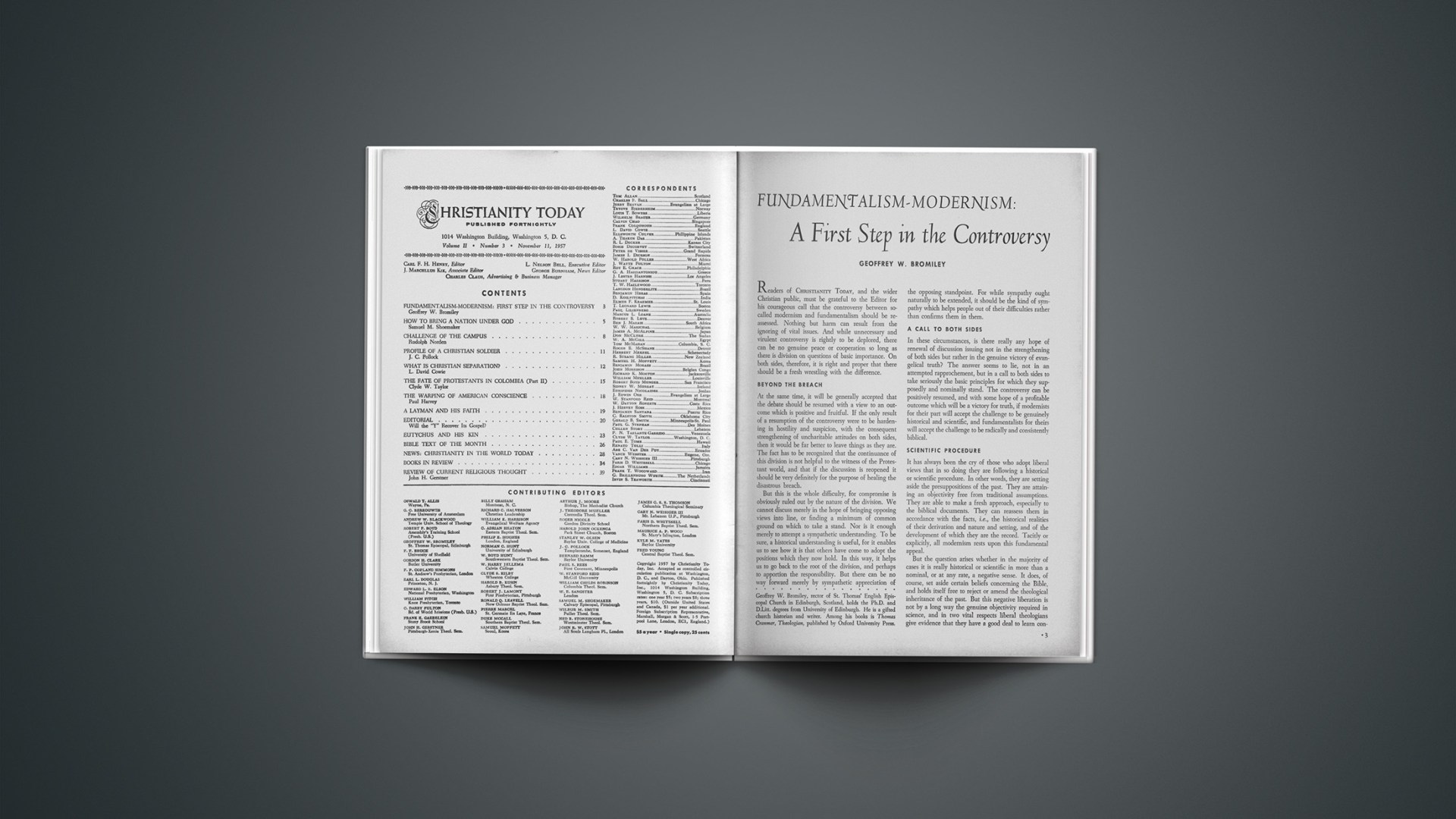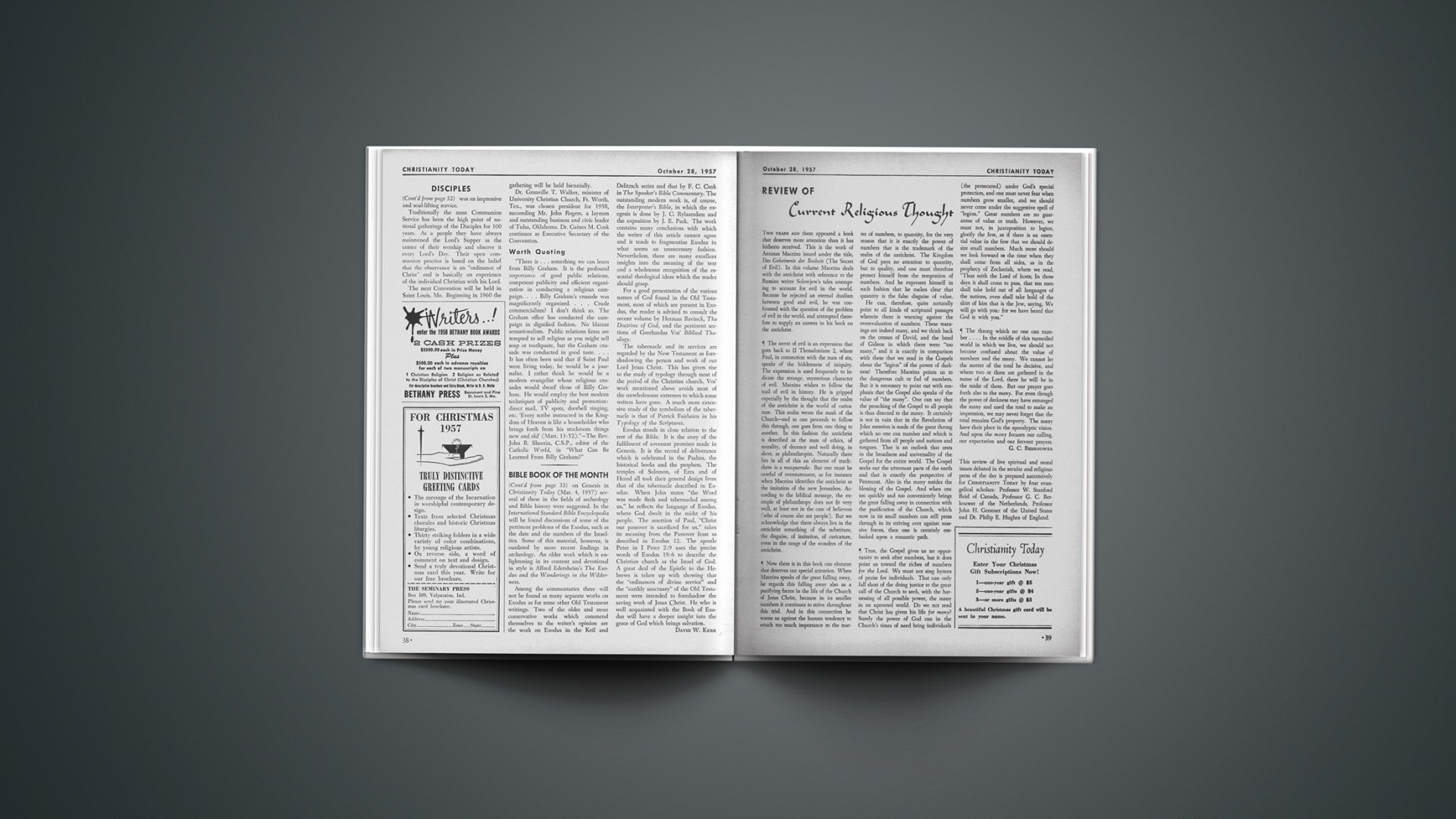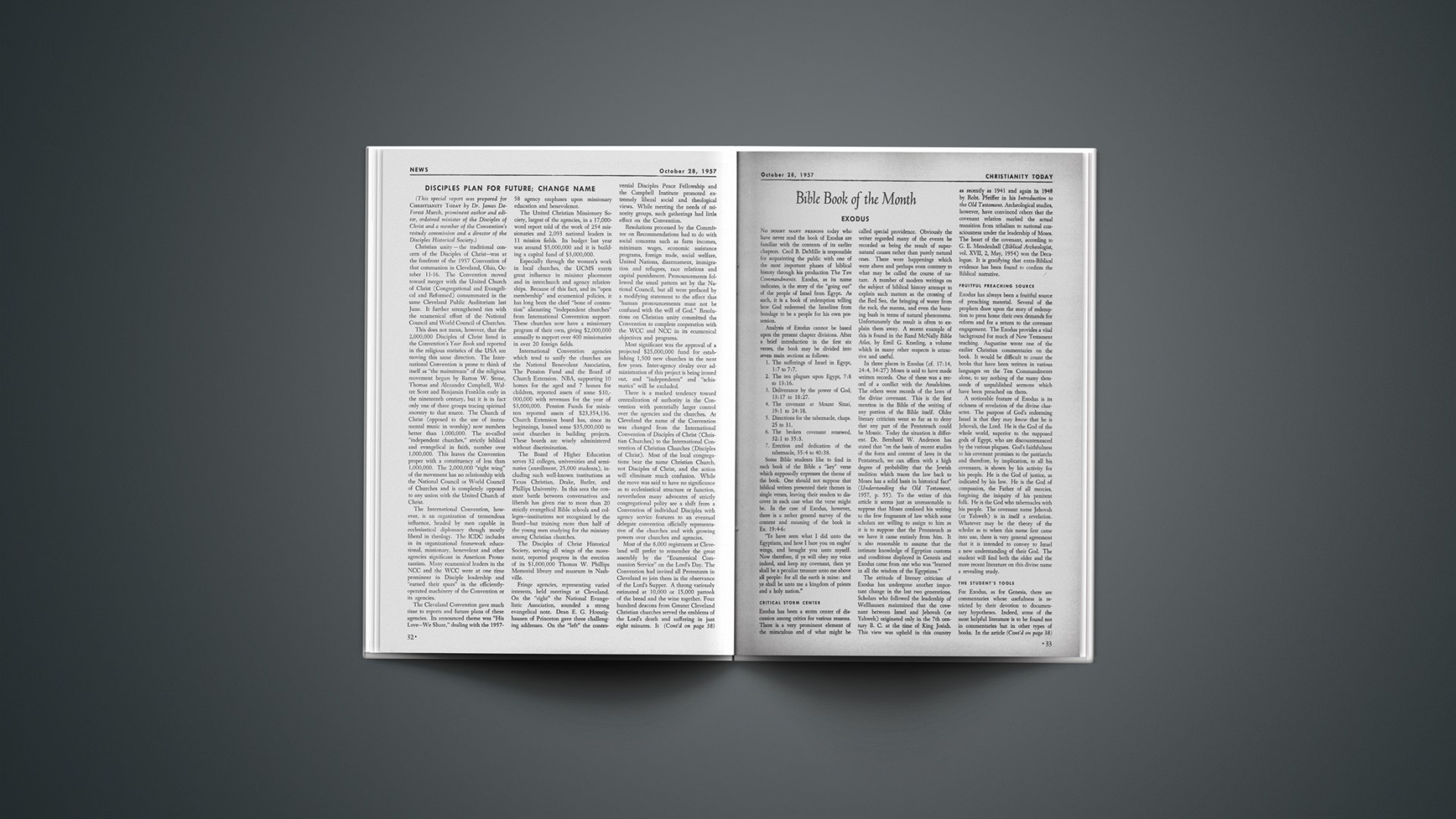In my multi-engine airplane there are two of everything. Two engines require much duplication of controls and gauges, but why two compasses? It’s because you’ll catch one of them lying to you sometimes. Because of other attractions and distractions, a generally dependable magnetic compass will sometimes look you squarely in the eye and lie about which way is north. When that happens—when your compass gets out of kilter—you have to ground your airplane, reswing the compass, readjust it, until it tells the truth again.
A man’s conscience is subject to similar deflection, Or a nation’s conscience. And as surely as a bad compass, pointing the wrong way, can lead you into trouble, so can a cockeyed conscience.
Beside your bed is an alarm clock. A dependable, trusted instrument capable of awakening you at six o’clock in the morning—unless you forget to wind it. There is another way you can cancel out its effectiveness—ignore it. If morning after morning you are awakened by the alarm but refuse to heed it, eventually it will cease to alert you. It may not even awaken you. Ignore it long enough and you’ll cease to hear it. In this case the clock is still there and still accurate and still ringing, but you don’t let it bother you anymore.
A man can deafen himself to his conscience the same way. A nation can do the same.
The Meter Is Bent
I find the struggle with my own compass, my own alarm clock, my own conscience, is a constant one.
Man comes into the world equipped with a brain and a conscience. Each must be educated to work properly or it is unreliable.
Manhattan’s mad bomber seemed such a delightful fellow. He liked flowers, had a cheerful disposition, made a pleasing appearance. But somewhere back there the built-in gauge that tells a man the difference between right and wrong got damaged. The needle was bent.
Suddenly what was morally wrong seemed morally right and he went around planting time-bombs in public places. He still had a conscience, but it wasn’t working right. So society disposes of Mr. George Metesky with one uncomplimentary adjective and locks him and his unreliable conscience in a place of confinement.
Yet the needle in the conscience meter is bent, if to a lesser degree, in most of us. We have gradually “adjusted our consciences” to where we are now against burlesque shows in a downtown theater. We say they are “wrong.” Yet we, through TV, feel no conscience anymore as we invite a burlesque show into the family parlor.
Or we say it is all right for the dancing girls to wiggle in all manner of suggestive undulation, but all wrong when a guitar-playing boy does the same thing.
See how unreliable your conscience can be? I am not being smug about this. I could not evaluate it so thoroughly if I did not understand it so personally. I know how a conscience meter can get out of repair.
From The Mount
And each man must regulate, adjust, oil, maintain and service his own conscience to keep it properly in tune with the laws Moses brought down from the mountain.
In national and international affairs, our sometimes contradictory policies result from a “bent needle.” A “compass” that is trying to tell us that north is two different places, and it’s not really.
The Apostle Paul once wrote a letter to the Romans telling them how man was supposed to follow God; not try to make God over into his own image. Yet this is the tendency. And so, “professing themselves to be wise, they became fools.”
A man can’t make his own rules as he goes along, for then he goes in circles. We cannot make our own morals. We will either return to the Sermon on the Mount or we will destroy ourselves.
The Republic which was born in Philadelphia will have to be born again. If the Republic is to live, it must be fit to live.
This earthly while is a testing time, determining which of us deserves to populate some more perfect place. Americans have been especially favored. But there is another way to say that: We are being singularly tested. More than most, our seven per cent of the earth’s people have been abundantly endowed with the material blessings which invite sloth. Americans, then, must preserve, protect and defend this garden spot or surely they will have failed to measure up to any higher responsibility.
General Charles Lindbergh said, “We have measured success by our products rather than by ourselves. A medium which over-emphasizes short term survival detracts from the humanism essential to long term survival. We must remember that it was not the outer grandeur of the Roman’s but the inner simplicity of the Christians that lived on through the ages.”
Can the decline of American morality be reversed? Can our warped conscience be set straight?
God would have spared Sodom if he could have found ten righteous men. That was all he asked. Ten good men and he’d have spared the city.
Badness, resulting from an unreliable conscience, from misdirected emotions, wrote every black headline in today’s paper. Every one. On the other hand, properly ordered emotions are the basis for love, friendship, kindness, mercy.
We have been figuring religion is just for small children and old ladies. One hundred and three million churchgoers are more than ever before. Half again what attendance was ten years ago. Church attendance has increased far faster than our population has increased.
Yet, at the same time, prison rolls have climbed at the fastest rate in history. How come? How come some ninety-four million get a Sunday morning shower bath and yet so many don’t come clean?
The Republic, born in Philadelphia, can be born again … only … one man at a time!
Richard Lloyd Jones said: “We must begin again.” And the hour is late. So many stand to lose so much.
Jesus said: “Ye must be born again,” and the time is short.
Sigmund Romberg, for the lyric score of New Moon wrote, “Give me ten men, stout-hearted men, who will fight for the right they adore. Give me ten men, stout-hearted men, and I’ll soon give you ten thousand more.”
That’s the way it works. Ten men raise their voices and Jericho falls. Ten righteous men and Sodom and Gormorrah may be spared.
Ten … to inspire ten thousand to lead us … back to the Genesis of American Liberty … back to a reliance on “Divine Providence” and “Sacred Honor.”
We must return to the God of our fathers, for it is to him that we owe all blessings of the past and hope for the future. Then the law of the Lord will again be the respected law of this land. Then we’ll be worth saving.
After World War II, in which he served as Director of News and Information for the Office of War Information in Michigan and Indiana, Paul Harvey’s rise to radio fame was meteoric. He is heard over the ABC network Monday through Friday at 12 noon, CST.



